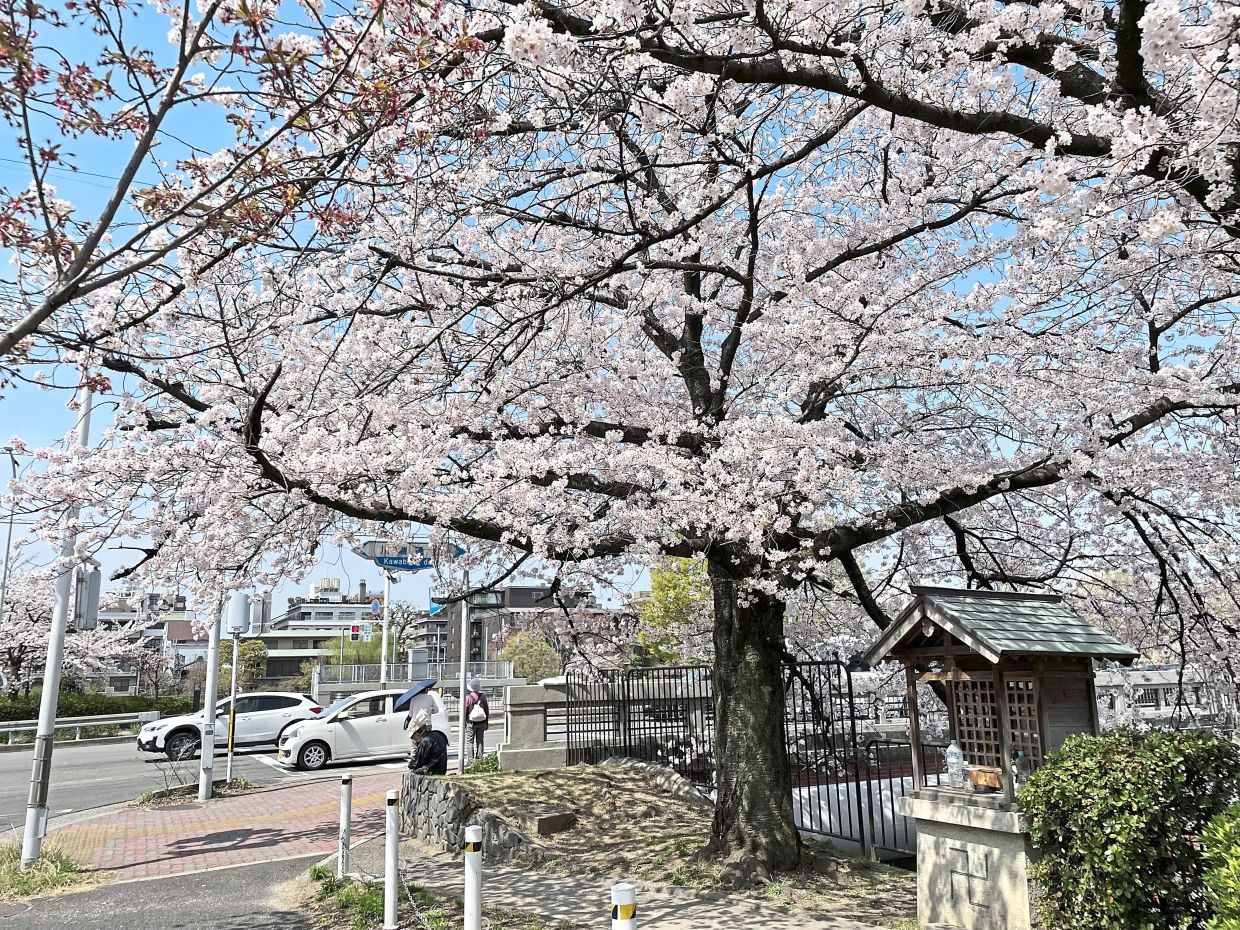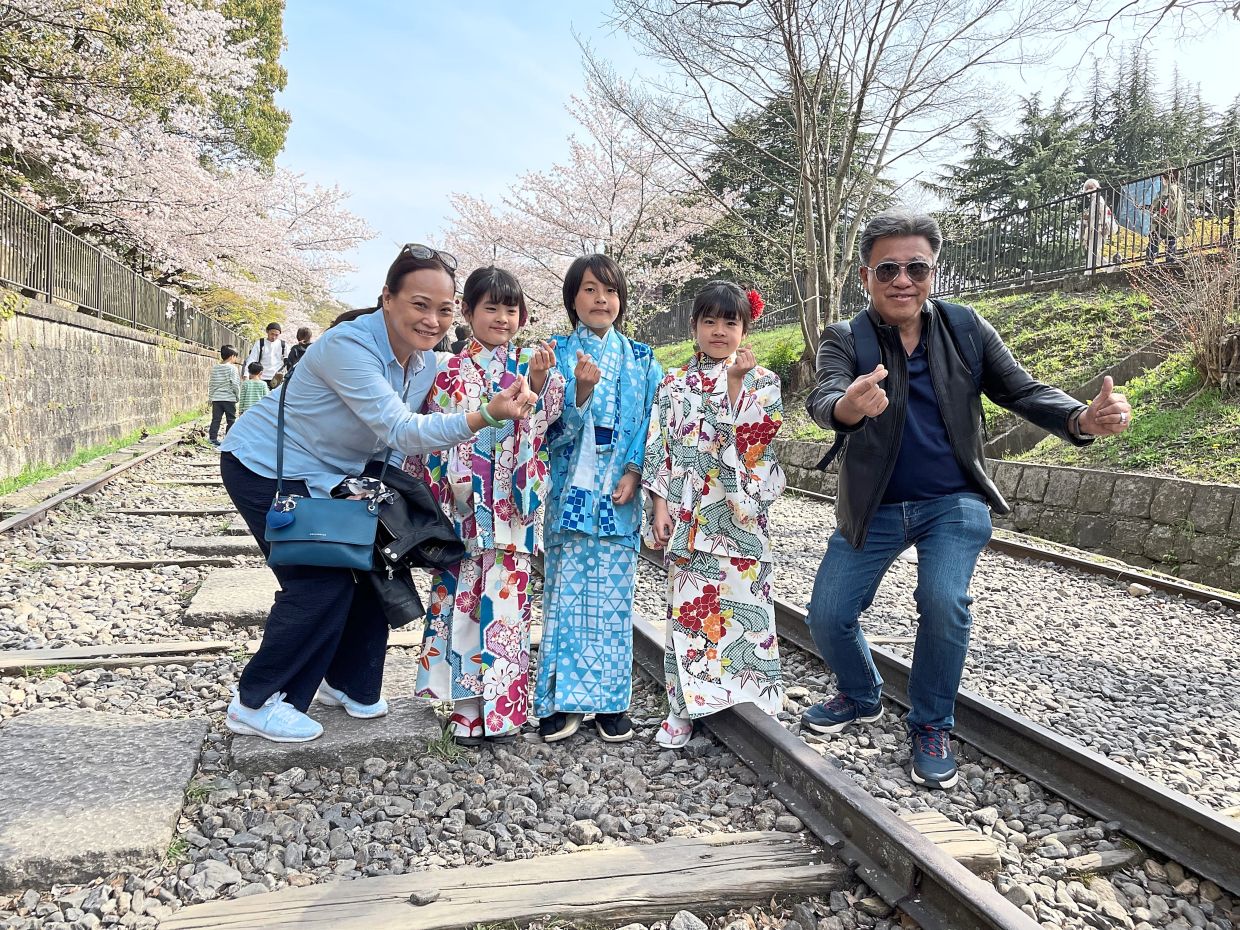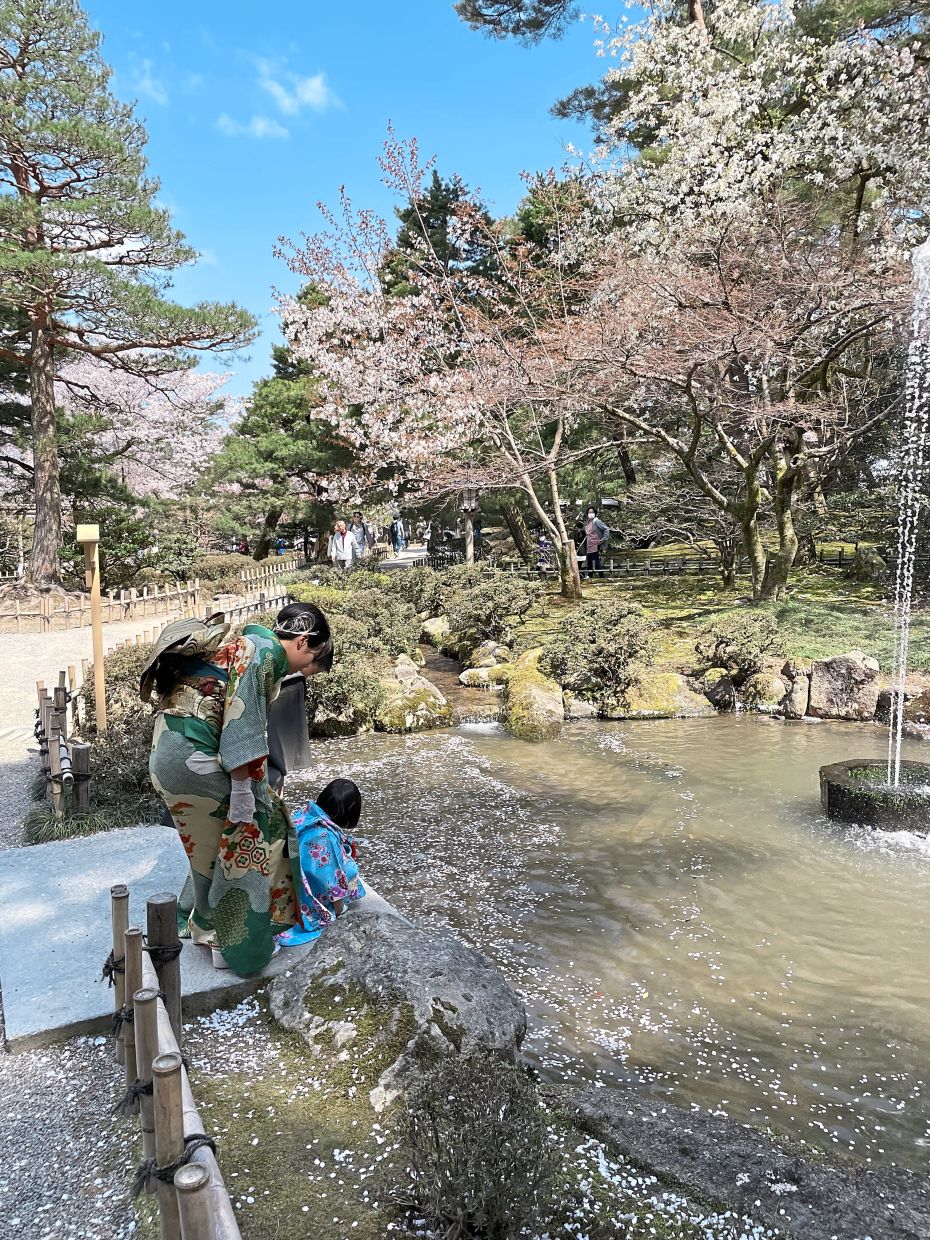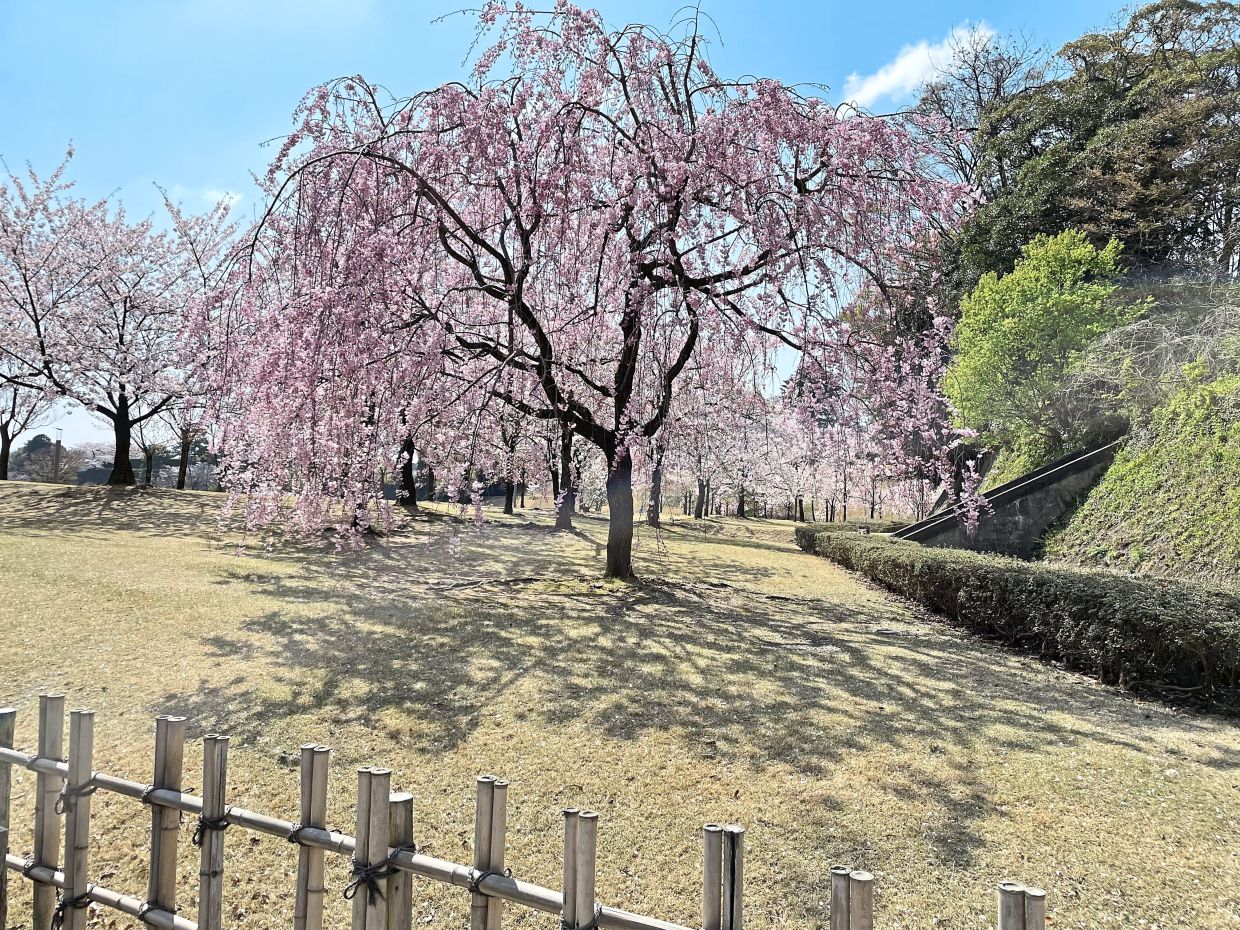
This year, cherry blossom season in Japan started earlier than expected. — Photos: FLORENCE TEH
It has become progressively difficult predicting the cherry blossom season in Japan each year. Since it’s regarded peak period, travellers should make their airline and hotel bookings at least six months in advance to get a good deal.
Some may have even placed their reservations a year ahead. In my case, I bought three air tickets to Osaka before Covid-19 hit.After two years, Japan finally fully opened its borders a few months ago. Unfortunately, my mum-in-law didn’t make the trip because she passed away last year.
It was her wish to see the sakura, but we couldn’t realise her dream. Besides, she knew her days on Earth were numbered.
Finally, my wife Florence and I made the trip on March 30. Malaysia Airlines kindly reimbursed my mum-in-law’s fare.
But we still had to take our chances on our timing to be in Osaka – which was our gateway to Kyoto and Kanazawa, our true destinations.
The cherry blossoms only have a short blooming season. Just about two weeks before the petals fall off and it’s over. It’s certainly a reminder of how fleeting life can be.But we arrived in Kyoto during the peak of the season. This year’s cherry blossom has bloomed earlier than usual, with reports that the season moved on to other areas like Sendai and Yamagata just a few days before our arrival – which was two weeks earlier than usual!
My former colleague, PK Katharason, who now resides in Kyoto, texted me before our arrival saying the rain had started, and he was worried that the petals would be completely gone before we arrived.

The writer and his wife, Florence, at Kyoto’s Keage Incline or Sakyo-ku, with three cute youngsters dressed in traditional garb.
But the cherry blossoms waited for us. Not only in Osaka but in Kyoto, Kanazawa and Nara as well, which my sakura trail took me to subsequently.
PK took us to Kyoto’s Keage Incline (Sakyo-ku), a former railway track known for clusters of picturesque cherry blossoms lining a 582m-long space, which offers the best setting in spring.
It was such a delight to see many locals and foreigners dressed in kimono and posing with the gorgeous cherry blossom trees, numbering about 100.
In fact, just down the road is the popular Philosopher’s Path, a cherry-tree-lined canal, with over 400 trees!
Linking the disused railway line is Lake Biwa Canal leading to Kyoto’s Kamo River, which was used to transport water, merchandise and passengers.
After two nights in Kyoto, we embarked on a two-hour train ride to Kanazawa, which is known for its well-preserved Edo-era districts, geisha houses, samurai districts, art museums and the iconic Kenrokuen Garden, which opened in the 17th century.
Kanazawa is not on the radar of most Malaysian tourists, but it’s worth visiting because of its well-preserved historical sites, and it has successfully retained its traditional atmosphere.

At the Kenrokuen Gardens in Kanazawa, locals (and foreigners) were seen enjoying themselves in beautiful kimonos.
At the Kenrokuen Gardens in Kanazawa, locals (and foreigners) were seen enjoying themselves in beautiful kimonos.
Kenrokuen is certainly the number one spot for cherry blossoms. So, it was no surprise when we spotted a couple from Hong Kong spending hours, with an entourage of photographers and make-up artists, posing for their wedding pictures.
There were families, all in their traditional Japanese costumes, taking pictures and just milling about.
The third stop was Nara, with its world-famous deer park. Set up in 1880, it’s one of the oldest parks in Japan, with about 1,300 deer roaming in the sprawling park and temple grounds.
What could be better than having your Instagram pictures taken with the deer and the cherry blossom trees? Indeed, that was something my wife and I did.

A gorgeous sakura tree in one of the gardens in Kanazawa.
But all good things must come to an end. We wrapped up our adventure at Osaka Castle, waiting for the sunset.
We joined the younger crowd of Japanese around the castle garden, where they were drinking sake, beer, and eating beef on skewers and takoyaki, the ball-shaped Japanese snack filled with diced octopus.
Here’s a tip to keep your budget reasonable – book your hotels early, choose one that’s near a train station, so you don’t have to resort to the expensive taxis. Travel light and exclude breakfast as part of your hotel stay.
Better still, check if the onsen or public baths are part of the hotel facilities. Japanese hotel rooms are tiny, so having a good scrub down at the spacious thermal baths is recommended.
There are many good Japanese meals anywhere and anytime on every street corner. If you’re lost and your app can’t help you, just ask for directions because the average Japanese person is most helpful and courteous, even if they might struggle a little with English.





